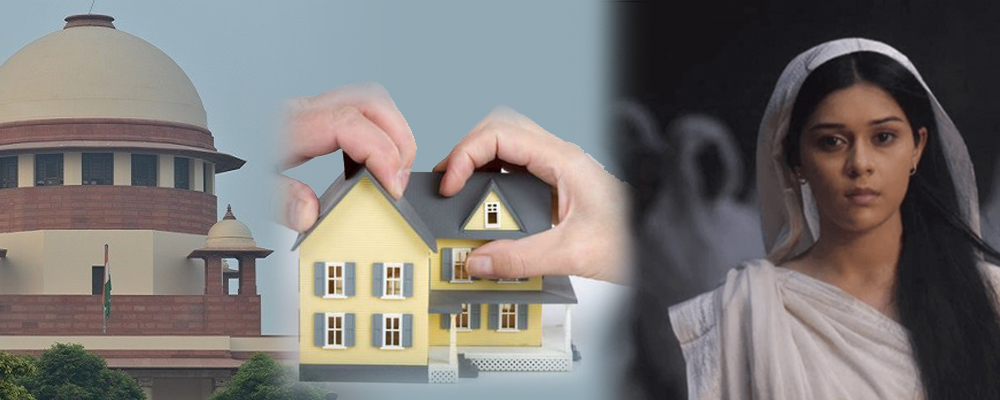The Division Bench of Justice Ajay Rastogi and Justice Bela in the case of Munni Devi alias Nathi Devi (dead) & Ors. v Rajendra alias Lallu Lal (dead) & Ors., held that a Hindu widow when has exclusive legal possession of the HUF property, it shall be presumed that such property is her pre-existing right of maintenance. Also, this becomes more particular, when no other alternative was provided for recognizing her pre-existing right of maintenance by the coparcener.
Facts:
The property in question belonged to two brothers Harinaraynji (father of plaintiff) and Ganeshnarayanji (father-in-law of defendant). Ganeshnarayanji died in 1938, while his brother Harinarayanji died in 1953. While the husband of Bhonri Devi (defendant) predeceased his father.
The plaintiff claimed that after the death of his father, Harinarayanji, Bhonri Devi started harassing him, after which he was forced to leave the property in 1953, and thus, Bhonri Devi took over the complete possession of the property.
Need A Legal Advice
The internet is not a lawyer and neither are you. Talk to a real lawyer about your legal issue

The plaintiff claimed that-
He is the sole male member of the family as well as legatee under the will of Harinarayan ji, and thus, he is the sole owner of the property, and the sole ownership and possession of the property should be given to him as the defendant Bhonri Devi has no legal right whatsoever, over the property.
Also, there was no limited ownership created in favor of the defendant, as there is evidence of statutory law or customary law of inheritance or any decree as is contemplated in the clarification of Section 14(1) of the Act.
The possession of suit property was never given to the defendant as her for her maintenance. Mere possession and no right won’t have Section 14 applied in this case. For Section14 of the Hindu Succession Act to be applied “limited ownership” is the necessary element, which could then be granted complete ownership, however, here no such “limited Ownership” is there, hence the said Section can’t be applied.
the suit property being an ancestral property of the appellants, should be kept within their family, and not be passed to the present respondents who are nieces and nephews of the deceased Bhonri Devi
The Defendant contended-
Bhonri Devi is the wife of Dhannalalji and was the Daughter-in-law of Ganeshnarayanji and has the possession of the property as the owner and has maintained herself from the income gained from the property in question. Also, under the Section 14(1) of the Hindu Succession Act,1956, her limited right now has enlarged into complete ownership.
it has to be noted that, the coparcener when alive, did not point out the property for the maintenance of the defendant, and her exclusive possession after the death of Harinarayan ji was never questioned by the plaintiff Daulaji, thus recognizing her right of maintenance
The property possessed by the defendant is 1/4th of the property, while the 3/4th property was under the ownership of the plaintiff.
Judgment:
The court held that, The Hindu woman’s right to maintenance is not a mere formality. It’s a tangible right against the property, formed due to the relationship between husband and wife. The same right was recognized under the Shatric Hindu Law, existing before the Acts of 1937 1946 was passed.
The Court held that, “where a Hindu widow is in possession of the property of her husband or of husband’s HUF, she has a right to be maintained out of the said property….Section 14 (1) and the Explanationthereto envisages liberal construction in favor of the females, with the object of advancing, promoting the socio-economic ends sought to be achieved by the said legislation.”
Lead India provides a wide pool of experienced lawyers who provide guidance as well assistance in dealing with cases related to the issues of family law, partition, ownership, etc. Advice on various legal issues can be provided online as well as in telephone conversation.





 Talk to a Lawyer
Talk to a Lawyer